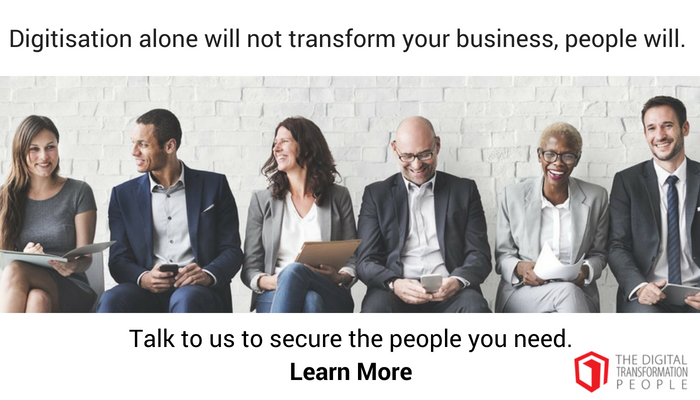Every day for the past few months we’ve heard stories of well-known businesses folding and there are legions of smaller businesses experiencing the same fate. They tell us it’s a result of the COVID crisis, but is this realistic or is it, in fact, the COVID-cop-out many business leaders were hoping would materialise to get them off the hook?
No more than a quick look at the trading history of many of the casualties of the crisis reveals the truth about their inevitable slide into oblivion. These businesses were already suffering the consequences of miss-management. Decades of being oblivious to the bigger picture have meant business leaders have not seen change coming until it was too late. Once it was undeniable their efforts to camouflage their shortcomings became their priority. The constraints of COVID-19 haven’t caused their demise, it has merely made obfuscation impossible and accelerated the process.
There are undoubtedly more to come. Those clinging by their fingertips to a world that was, knowing their fall is unavoidable, but hoping against all logic that they will somehow fall upwards. It isn’t going to happen.
Is there still a chance for any of them? The majority of experts would say no, but I’m an optimist. I never say never and I believe that a few businesses that are now in this situation can pull it off. Nevertheless, it requires an epiphany and we all know these don’t occur every day.
Ten things you need to accept before you can move on from the COVID-cop-out.
So, what is this salvation going to entail? Here’s the reality check. Ten things you just have to accept on face value because there is no time to waste trying to persuade you. If you buy in you may just pull off the great escape!
1 – Transformation isn’t synonymous with digitisation or automation.
The two are very different things. Digitisation and automation is what many businesses have mistaken for transformation. In fact, all that does is speed up your demise. It’s your traditional business model that is wrong not, just it’s mechanics. Transformation, on the other hand, is the process of re-engineering your organisation to meet the demands of the digital economy and the new customer.
2 – You can’t avoid transformation.
A traditional business can’t hope to compete with a disrupter. Today’s digital businesses will deliver a better customer experience, better products, better quality, faster and cheaper and probably still make a bigger profit that you could dream of.
3 – You won’t win a gun battle with a water-pistol
For a business to operate successfully in the new economy requires different skills and experience to those that have brought businesses this far. If you were an early mover you may have had time to identify your skills gaps and train existing employees to fill them. However, if you are only now awaking to the need you’ll probably have to bring in consultants or hire new talent and that’s going require significant investment.
If you tackle your transformation in an orderly fashion, though, a well designed and managed process should enable you to identify your weaknesses and address them quickly.
4 – Selective employment works both ways.
Many businesses are hampered in their rescue by low skills levels brought about by unrealistic hiring practices in the past or the failure to understand how even a traditional business should have operated.
Weak leaders faced with the challenges of an increasingly competitive marketplace have, often inadvertently, effectively dumbed down. This has been evident in their recruitment advertising. Salaries on offer have been unrealistically low given the demands of the role they are trying to fill. Job descriptions for a “marketing Assistant” can list demands you would normally associate with a manager or even director while in other cases I’ve seen ads for “Marketing Directors” that described a marketing director’s role, but didn’t occupy a board seat.
Recruiters have been complicit in this by failing to advise their clients and the outcome has been inevitable. People all over the place are occupying positions they aren’t qualified for. They are grateful, of course, and are unlikely to move on voluntarily not just because no other firm would be dumb enough to hire them, but because they are being paid more than they are worth, although still less than the going rate for the title.
5 – Loyalty doesn’t qualify you as an expert
Privately-owned businesses that have been operating for a long time often suffer from a unique problem in that a core of their personnel may have been with the business for years. These employees frequently have been rewarded for their loyalty with promotions to positions they have little or no experience of. I recently came across a business that had a number of these types of employees.
There’s nothing wrong with promoting loyal employees, but you have a responsibility to train them to do the job you’ve given them and very few business leaders recognise this. The business in question had gone one further with one of their employees who simply wasn’t smart enough to handle anything but a routine job under close direction. He’d failed at numerous roles within the business over a period of years, but because the CEO believed he owed the employee for his loyalty he was moved sideways rather than down or out. This pattern was repeated in other areas of the business resulting in the business failing to meet industry standard in many.
6 – Marketing isn’t an internal service
The biggest misunderstanding surrounds the role of marketing. Ask many business leaders to define marketing and they’ll tell you it’s about communications, advertising, creating collateral, but they are wrong. These things are involved of course, but they represent a very small corner of marketing territory.
Marketing is the process of aligning an organisation to end-user needs. This involves numerous disciplines and business areas including product and proposition development and structures and processes. In fact, marketing influences pretty well every area of any organisation.
For decades already, marketing has been the very heart of any successful business. Every business is a marketing organisation these days. Your marketing strategy is your business strategy.
This means that unless marketing is driving your business you will already be in a position to fail. One sure sign of a business destined to oblivion is one that doesn’t have a marketing seat on its board, which is why from 2016 onwards, in the UK more new CEO appointments have been made from marketing ranks that any other area of the business. At least someone is listening!
7 – You have to innovate to survive
The different skills required for the digital economy aren’t confined to the office floor. You need a totally different approach to management too. Many past-era businesses have effectively bread out precisely the assets they now need.
For example, to remain competitive in the digital economy a business has to continually innovate. Most traditional business find this impossible and one reason for this is that they have managed to get this far with hierarchical structures. I’ve encountered many businesses that the founder or CEO has built a workforce purely to execute their commands.
This has meant avoiding employing people who in their terms would be “trouble makers”. In other words people who question the status quo, or those who, in today’s businesses, drive innovation. Instead they have hired people who can follow commands and stepped hard on anyone who deviated from or questioned the CEO’s instructions. Apart from creating a counter-productive, negative and oppressive, work environment, this places the CEO in the impossible position of sole innovator. Impossible because no one person in any business is capable of maintaining the stream of innovation essential to success in the digital economy.
8 – The digital economy demands a new approach to management
Today’s CEOs are facilitators. It’s not their role to come up with the ideas, but to ensure employees understand the business objectives, remove barriers and provide access to the resources they need to bring their ideas to life. Innovation can come from anywhere in an organisation and this is often from the front line where people understand customers needs, probably better than those sitting around the boardroom table.
Transformation doesn’t happen in the boardroom, but the front line where employees deliver the promise. However insignificant a role might appear, senior managers have to appreciate the person doing it is an expert in their field. These are the people who will know how to improve the processes they work with and managers have to learn to listen to them and give them to support they need to test out ideas and develop improvements.
9 – Digital is getting in the way of transformation
One of the common mistakes business leaders make is to think of transformation as digital. The tools may be digital, but transformation is the combination of mind-set change and business re-engineering. Too many businesses start their transformation by upgrading their technical infrastructure and by doing so set a course for certain failure.
Transformation is not an IT project. You must first identify what you need to achieve to be successful and then build the infrastructure to deliver this. In the digital age, the infrastructure will inevitably utilise digital tools, but if you build that first you’ll be building-in compromises and inefficiencies no business can afford.
10 – Your brand is key to your success.
It’s becoming generally accepted that change can only be brought about with the buy-in of those concerned. As Greg Satell demonstrates in his book Cascades you need a community of people who share values and beliefs and have the same objective. That’s exactly what a brand is, so this is where you must start your journey.
The fact that brands are communities is still dawning on a lot of business leaders, but until this concept is embraced you won’t transform and you certainly can’t operate successfully in the digital economy.
I’m sure there are many more important facts to note, but if you get it so far you are already on your way to success in the digital economy. Don’t expect the COVID-cop-out to come to your rescue. You have to re-set your thinking to move forward with your business, but if you still need help taking it from here you know where to find me.
Article by channel:
Everything you need to know about Digital Transformation
The best articles, news and events direct to your inbox









